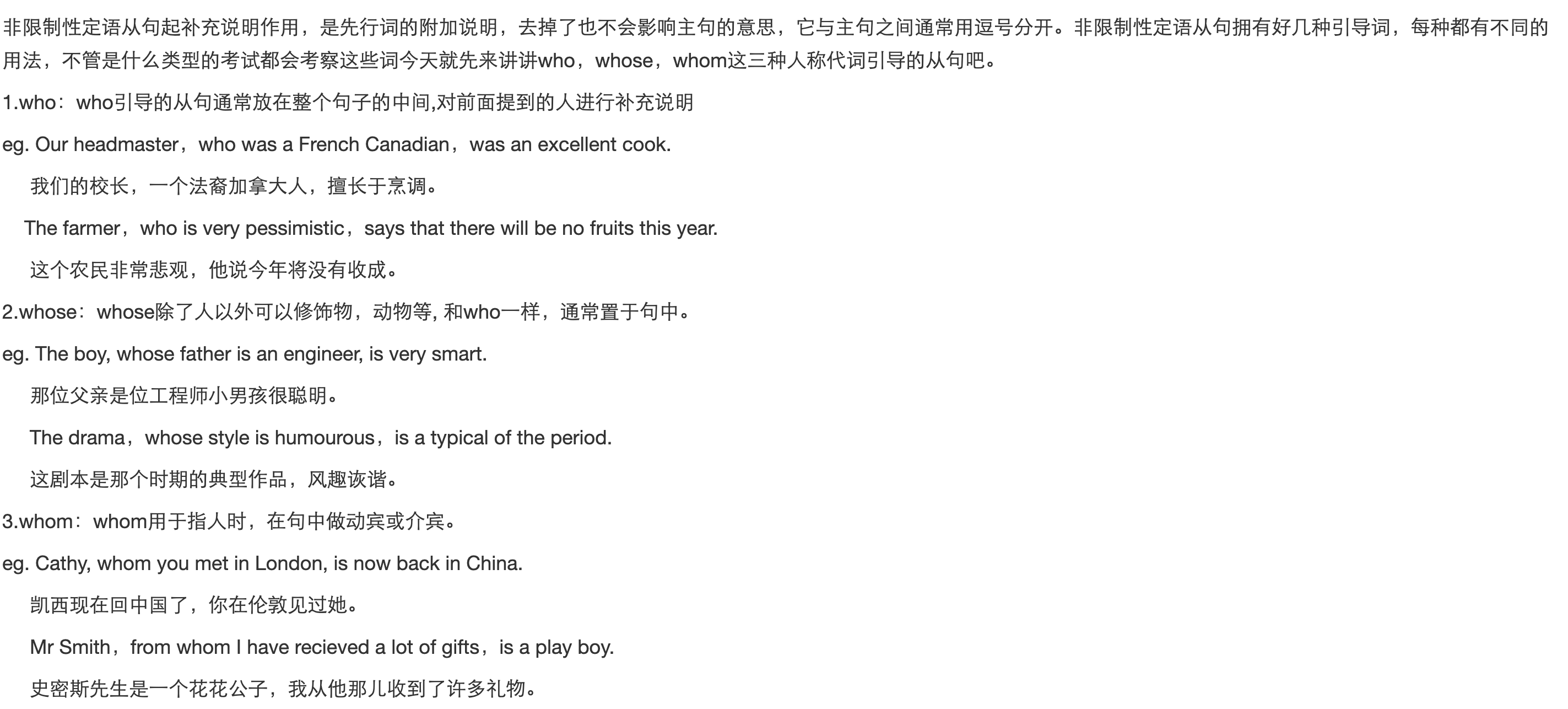What’s different between who and whom
Put simply, use whom—which is a pronoun(代词)—when it is the object of a sentence. If you can replace the word with “her,” “him,” or “them” for example, use “whom.” You’ll know when to use “whom” if the pronoun is used in the objective case, or action is being done to the pronoun. Take the sentence:
Whom do you believe?
The sentence may sound pretentious, even snobbish. But it is correct because “whom” is the subject of the infinitive “to,” as well as the object of the sentence as a whole.
Many people thus propose that governments need to tackle this issue by controlling the media, whom they see as responsible for inciting this violence through films and television
(这里的whom是做宾语)
My father is a doctor whom people trusted.
Who/Whom are you going to invite to your party?
(这里you是主语)
你要邀请谁参加你的聚会?
Who/Whom can we turn to in case of an emergence?
万一出现什么情况,我们可以求助于谁?
We have no idea who/whom the president will choose to be the new manager.
无论是引导限制性定语从句还是非限制性定语从句,当先行词指人的时候,如果不是直接用于介词后作宾语,都可以用 who(非正式)或 whom(较正式):
This aspect is discussed further by Crane, who / whom I mentioned earlier. 我前面提到过的克雷恩对这方面作了进一步的论述。
In that year he met Rachel, who / whom he was later to marry. 那年他遇到了雷切尔,后来和她结了婚。
注意:直接用于介词后作宾语,只能用 whom:
- I met a man with whom I used to work. 我碰见了个过去曾一起工作的人。
顺便说一句,引导特殊疑问句时也是如此。如:
Whom / Who are you writing to? 你在给谁写信?
Whom / Who do you like best? 你最喜欢谁?
若是紧跟在介词之后用作宾语,则只能用 whom,但这类表达通常只见于较正式的文体中。如:
With whom did you go? 你跟谁一起去的?

whom是作为宾语
1.Who is at the door?
2.Whom did you see at the door?
你知道为什么第一句要用who,而第二句用whom吗?答案是,who永远在句子或从句中作为主语使用,而whom永远作为宾语。
在上面的第一句话中who是主语。第二局中,you才是主语,而whom是直接宾语。
1.whom did you recommend for the job?
2.Are there any people whom you would recommend?
注意,在上面的两句中,you是主语。whom是动词“推荐”的宾语。

